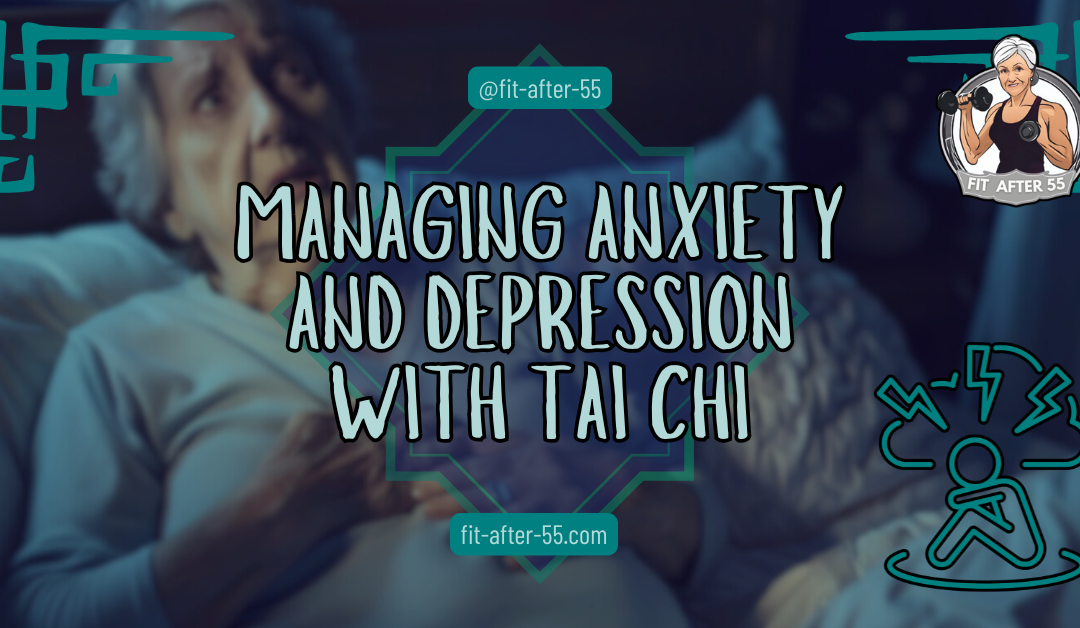Managing anxiety and depression with Tai Chi can often feel overwhelming, but finding a path to mental wellness doesn’t have to be. Tai Chi, an ancient Chinese practice rooted in slow, deliberate movements and deep breathing, offers a unique approach to calming the mind and easing emotional stress. Unlike traditional exercises, Tai Chi focuses on balancing the body’s energy while fostering mental clarity, making it an ideal practice for those looking to alleviate the symptoms of anxiety and depression.
Incorporating Tai Chi into your daily routine can provide a natural way to improve emotional well-being. The flowing movements encourage relaxation, reduce tension, and promote a mindful state that helps quiet the thoughts often associated with anxiety. Whether you’re new to Tai Chi or already familiar with its benefits, understanding how it explicitly supports mental health can empower you to take control of your emotional balance in a gentle yet powerful way.
Managing Anxiety and Depression with Tai Chi: A Gentle Path to Inner Peace
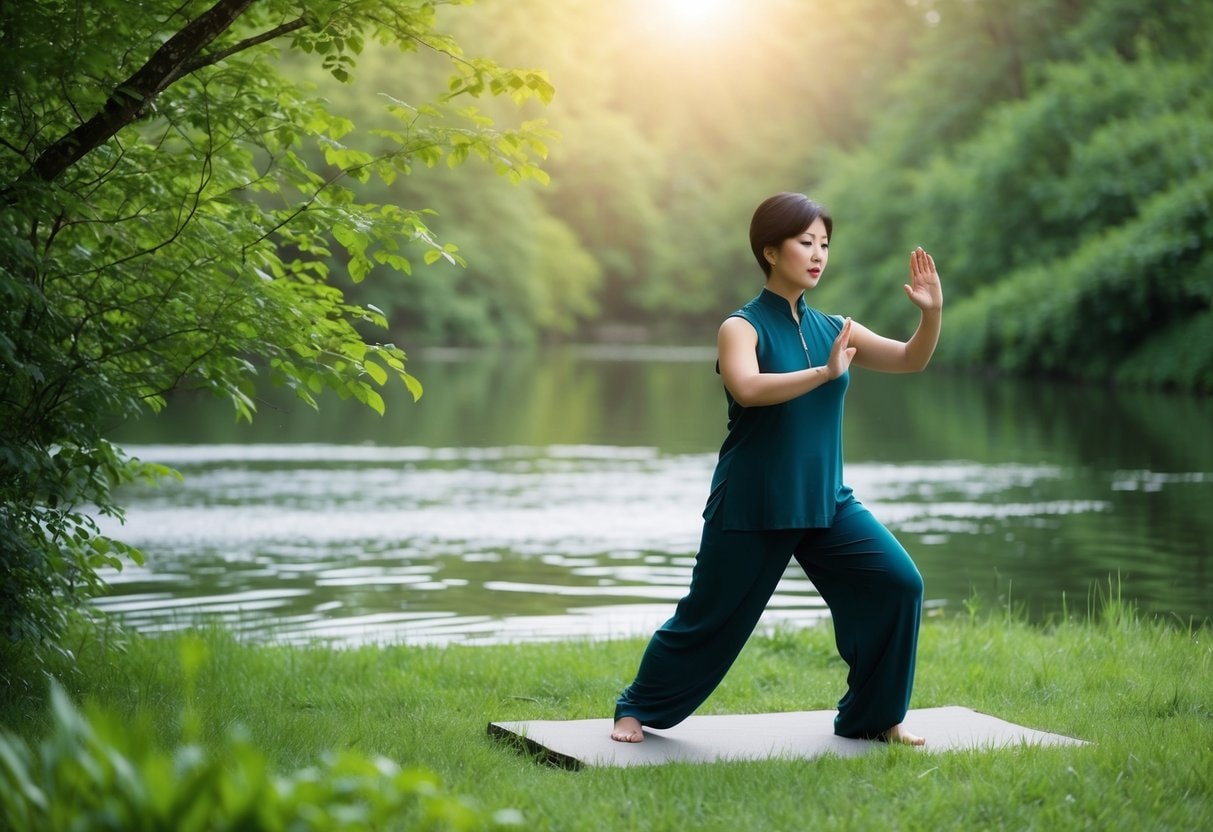
Are you feeling stressed or down? Tai Chi might be the answer you’re looking for. This ancient Chinese practice combines slow, gentle movements with deep breathing and meditation. It’s not just good for your body – it can help your mind, too.
Studies show that Tai Chi can reduce symptoms of anxiety and depression. You don’t need any special equipment or a gym membership to get started. All you need is a bit of space and some comfy clothes.
Tai Chi is easy to learn and can be done by people of all ages and fitness levels. It’s a low-impact exercise that’s gentle on your joints. But don’t let that fool you – it can still give you a good workout and help you feel more relaxed and centered.
Key Takeaways
- Tai Chi combines slow, deliberate movements with deep breathing, promoting relaxation and reducing anxiety and depression symptoms through mindfulness.
- This gentle exercise is suitable for all ages and fitness levels, requiring no special equipment. It can easily be practiced at home or in a class setting.
- Regular practice of Tai Chi not only enhances emotional well-being but also improves physical fitness, balance, and flexibility, contributing to overall health.
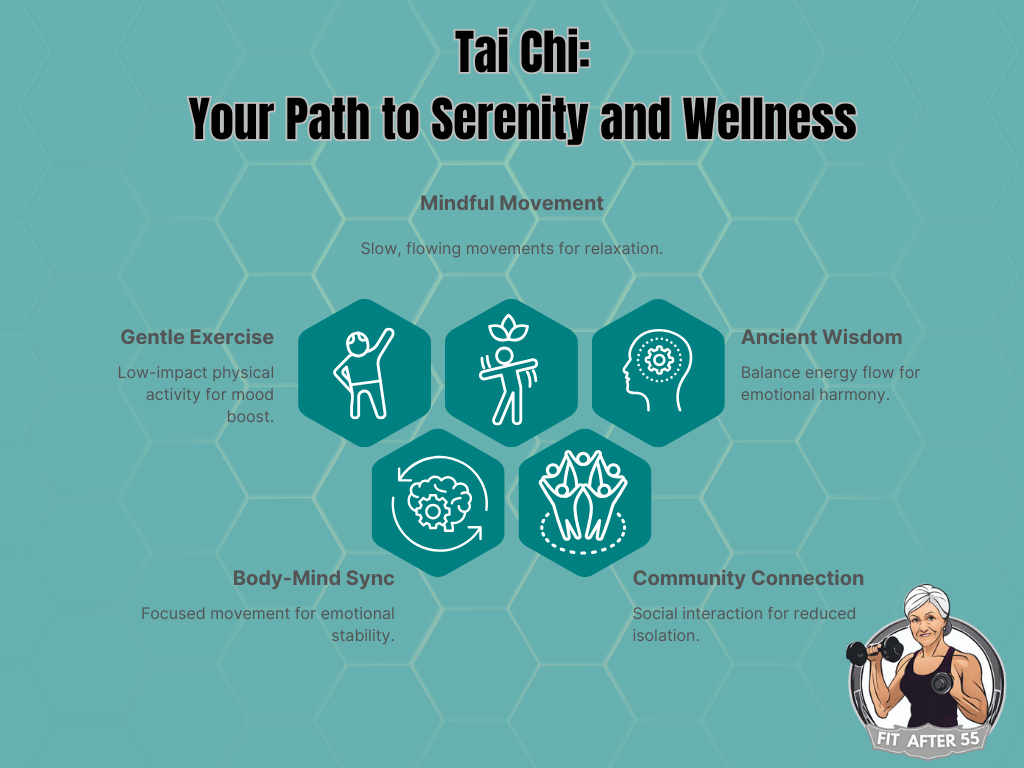
The Basics of Tai Chi
Managing anxiety and depression with Tai Chi is a gentle mind-body exercise with roots in ancient Chinese martial arts. It combines slow, flowing movements with deep breathing and meditation to promote physical and mental well-being.
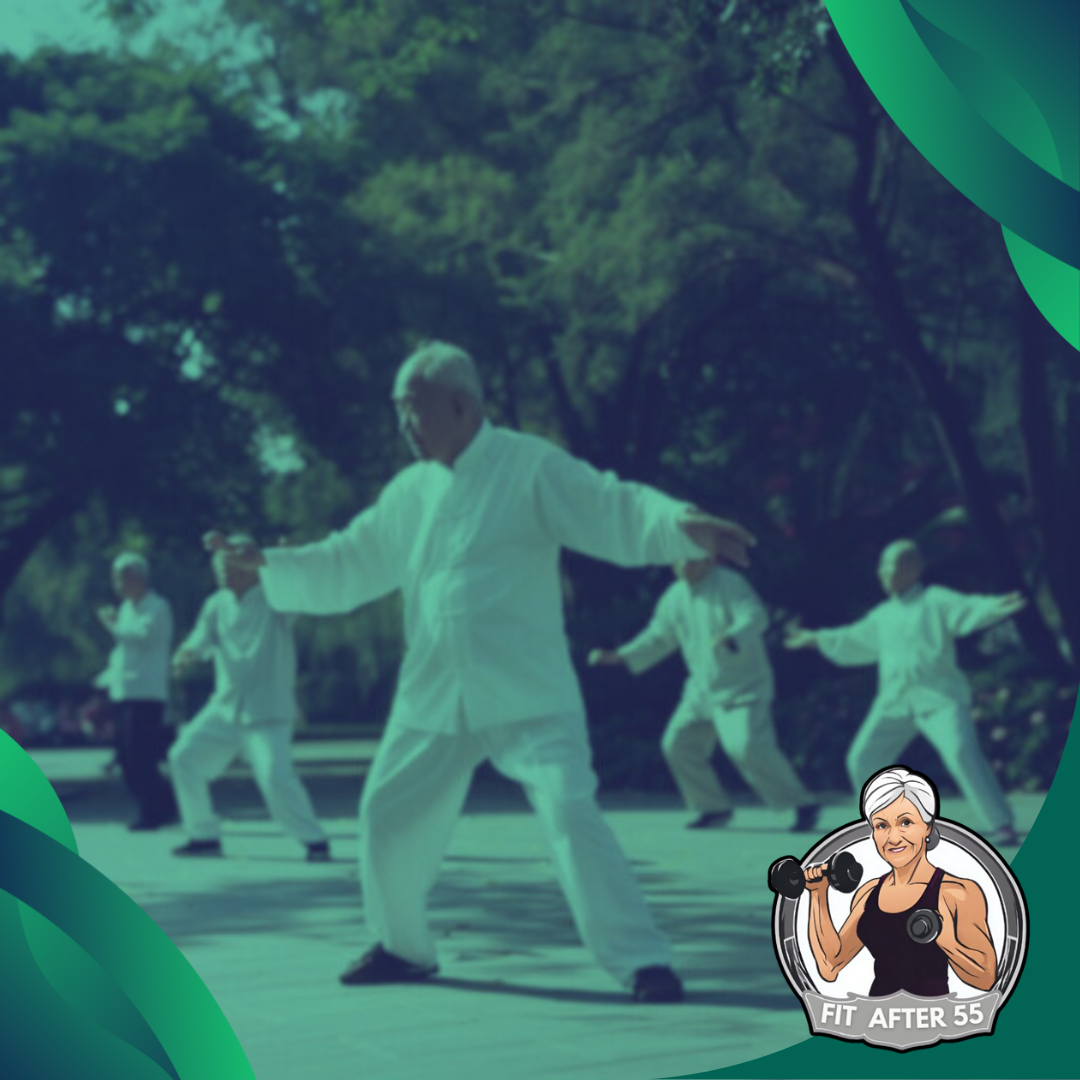
Historical Background of Tai Chi
Tai Chi originated in China over 700 years ago. It was first developed as a martial art by the Chen family in Henan province. Over time, Tai Chi evolved into different styles. The most popular is the Yang style, created in the 19th century.
In the 1950s, the Chinese government developed a simplified form of Tai Chi. This made it easier for more people to learn and practice. Today, Tai Chi is practiced worldwide for health benefits. It’s no longer just a martial art but a form of exercise and meditation.
Key Principles and Practices
Tai Chi focuses on slow, continuous movements. You perform these while breathing deeply and staying mindful. Key principles include:
- Relaxation of body and mind
- Slow, fluid motions
- Proper body alignment
- Mindful breathing
- Moving from your center (dan tien)
When practicing, you’ll flow through a series of postures. These mimic actions like “Grasp the Bird’s Tail” or “Wave Hands Like Clouds.” Tai Chi also involves meditation and qigong exercises. These help calm your mind and improve energy flow.
Understanding the Different Styles
There are five main styles of Tai Chi:
- Yang – Most popular, with slow, graceful movements
- Chen – The original style, more physically demanding
- Wu – Emphasizes small, compact movements
- Sun – Combines Tai Chi with other martial arts
- Hao – Least common, focuses on internal power
Each style has its unique features. But they all share the core principles of Tai Chi. Simplified Tai Chi is a shortened form. It’s great for beginners or those with limited mobility. You can choose a style based on your fitness level and goals. Some focus more on health benefits, while others emphasize martial applications.
Tai Chi for Psychological Well-Being
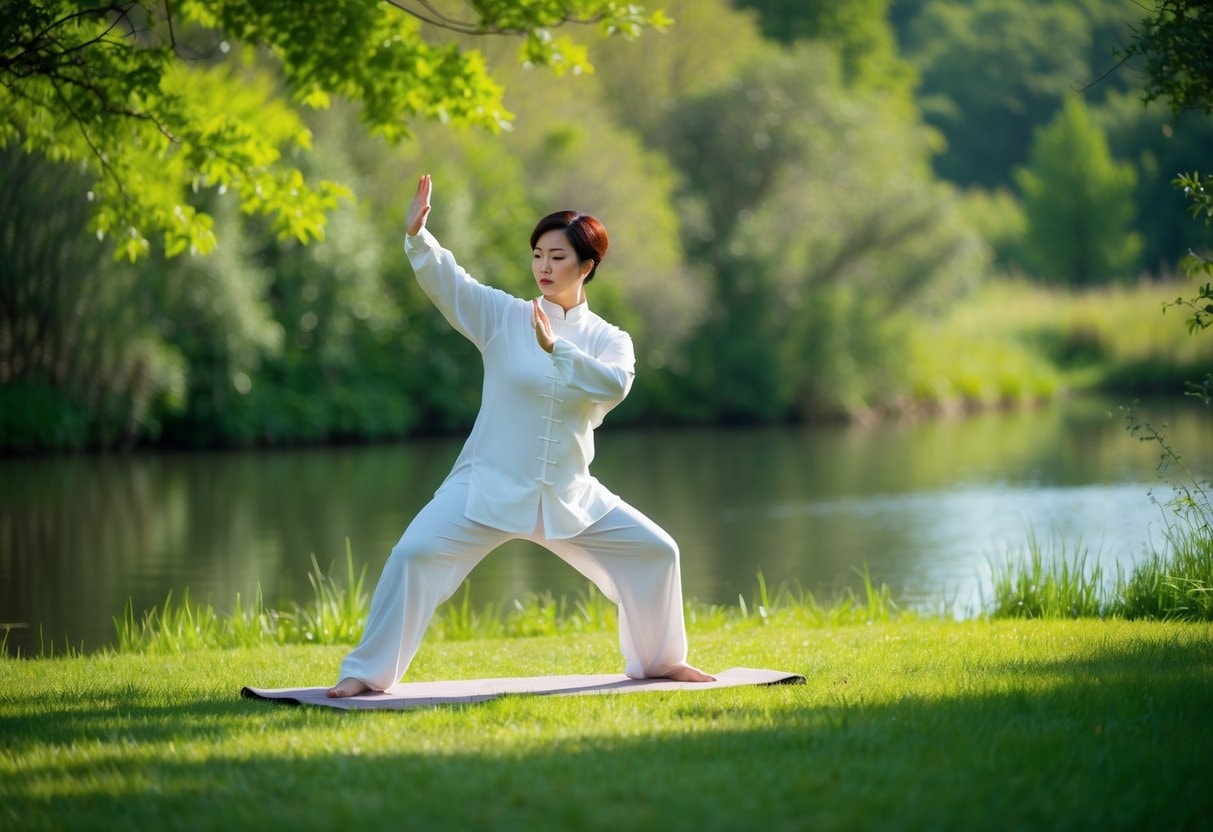
Managing anxiety and depression with Tai Chi offers many mental health benefits. It can help you feel calmer, happier, and more connected to yourself and others. Let’s look at how this ancient practice can boost your emotional well-being.
Impact on Anxiety and Depression
Tai Chi may help ease your anxiety and depression. Studies show it can improve mood and reduce symptoms. When you practice Tai Chi, you focus on slow, gentle movements. This can calm your mind and relax your body.
The rhythmic breathing in Tai Chi also plays a role. It helps lower stress hormones in your body. As you get better at Tai Chi, you might notice you worry less. You may also feel more positive about life. Tai Chi classes offer a chance to connect with others, too. This social aspect can lift your spirits and combat loneliness.
Improving Stress Management
Tai Chi is a great tool for managing stress. The slow, flowing moves help you relax. As you practice, you learn to let go of tension in your body. This skill can help you stay calm in daily life. Research suggests Tai Chi reduces stress levels.
It may even lower your blood pressure and heart rate. These changes can make you feel more at ease. Tai Chi also teaches you to focus on the present moment. This can stop your mind from racing with worries. You might find it easier to cope with challenges after regular practice.
Enhancing Mindfulness and Social Integration
Tai Chi boosts mindfulness, helping you stay present. As you move, you pay close attention to your body and breath. This practice can make you more aware in daily life. You might notice small joys more often. Colors may seem brighter, and food might taste better. This heightened awareness can lead to greater happiness.
Tai Chi classes also offer a chance to meet new people. You’ll share an experience with others as you learn. This can help you feel more connected and less alone. Regular practice might boost your confidence, too. As you master new moves, you may feel proud of your progress. This can spill over into other areas of your life.
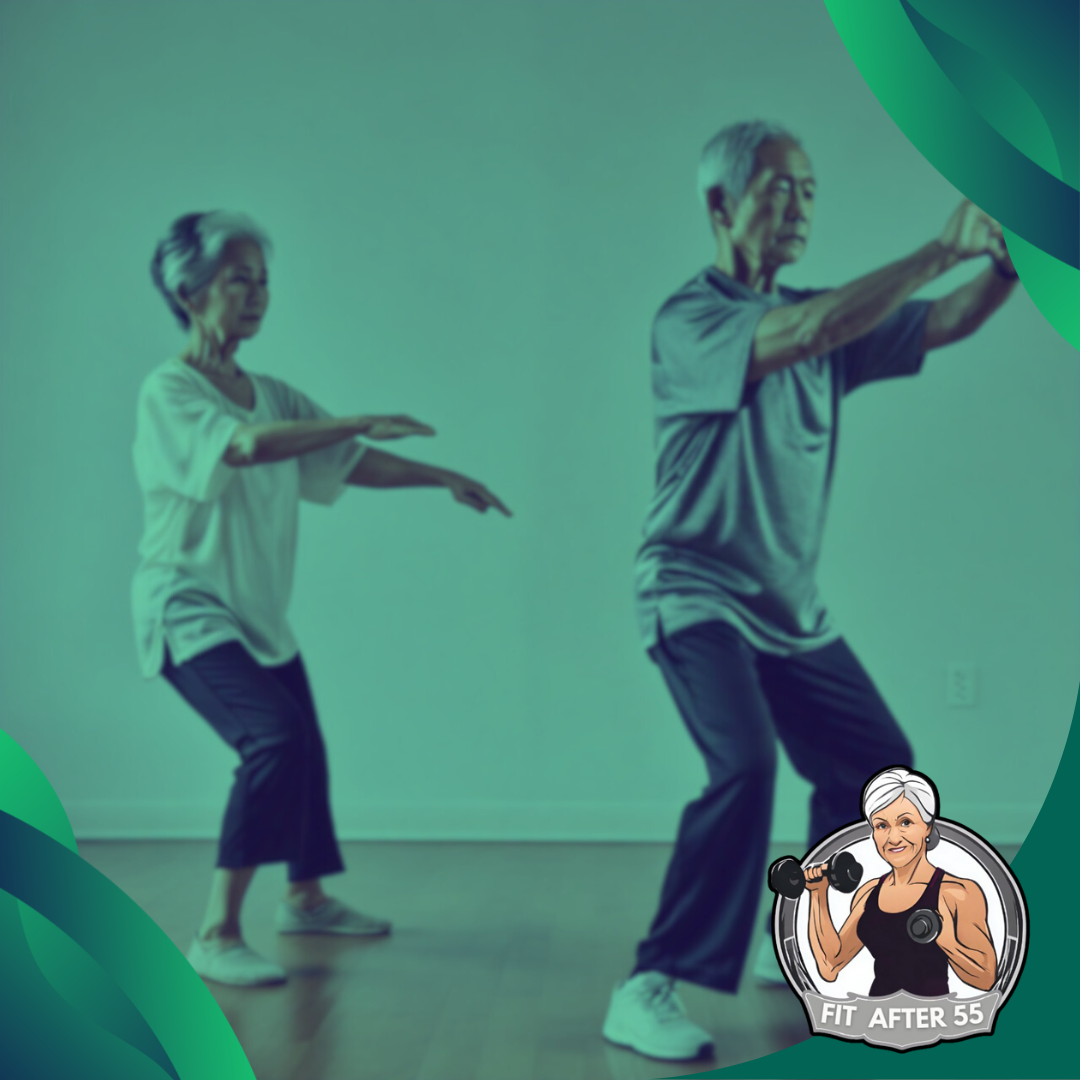
Did You Know?
Breath plays a central role in Tai Chi, as it helps synchronize movement and promotes relaxation. Deep, controlled breathing encourages the flow of energy (qi) in the body, enhancing the calming effects of the practice.
Scientific Research and Evidence
Tai Chi shows promise for managing anxiety and depression with Tai Chi. Studies have looked at its effects using different research methods. Let’s explore what the science says about this mind-body practice.
Overview of Systematic Reviews and Meta-Analyses
Systematic reviews and meta-analyses have examined Tai Chi’s impact on mental health. These studies combine results from many smaller trials to get a bigger picture. One review found that Tai Chi can help reduce symptoms of depression and anxiety. It also improved the overall well-being of people with various health issues.
Another meta-analysis focused on older adults. It showed that Tai Chi could ease anxiety and depression in this age group. These large-scale studies give a broad view of Tai Chi’s benefits. They help show patterns across different groups of people.
Analyzing Randomized Controlled Trials
Randomized controlled trials (RCTs) are key for testing Tai Chi’s effects. In these studies, some people do Tai Chi while others don’t. This helps show if Tai Chi really makes a difference. RCTs have found that Tai Chi can:
- Lower depression scores
- Reduce anxiety levels
- Boost self-confidence
One study looked at depression as the main outcome. It combined results from three RCTs. The findings supported Tai Chi as a helpful tool for mood. These trials give strong evidence for Tai Chi’s mental health benefits. They use careful methods to avoid bias and get clear results.
Addressing Publication Bias and Quality of Research
Scientists must be careful when studying Tai Chi. They need to watch out for things that might skew results. Publication bias can be a problem. This happens when only positive results get published. It can make Tai Chi seem more effective than it really is. To address this, researchers:
- Look for unpublished studies
- Use statistical tools to check for missing data.
- Rate the quality of each study they include
Some reviews note that many Tai Chi studies are small or not very rigorous. This means we need more high-quality research to ensure the results are accurate. By addressing these issues, scientists can give you a clearer picture of how well Tai Chi works for anxiety and depression.
Tai Chi as an Intervention for Mental Health
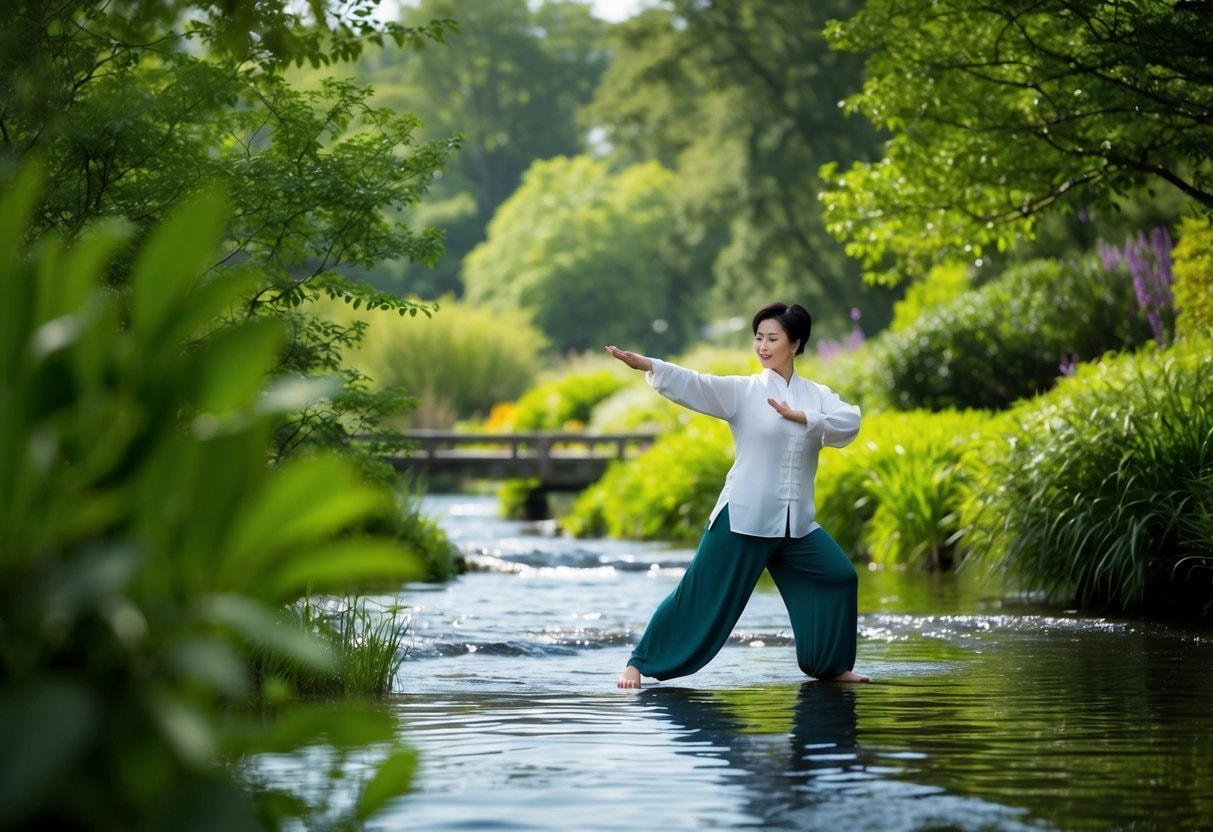
Managing anxiety and depression with Tai Chi offers a gentle yet effective way to improve your mental well-being. It combines slow, flowing movements with deep breathing and meditation to calm your mind and body.
Programs for Depression and Anxiety
Tai Chi can help reduce symptoms of depression and anxiety. Many programs use Tai Chi as part of treatment for these conditions. You might find classes at community centers, gyms, or hospitals. These programs often run for 8-12 weeks.
You’ll learn basic Tai Chi moves and breathing techniques. As you practice, you may notice your mood improving. Some programs mix Tai Chi with other treatments. For example, you might do Tai Chi along with taking medication. This combo approach can be very helpful.
Tai Chi in Therapeutic Settings
Therapists are starting to use Tai Chi more often in their work. You might see it in mental health clinics or rehab centers. In these settings, a trained instructor guides you through Tai Chi moves.
They might adjust the practice to fit your needs. For instance, if you have trouble standing, you can do seated Tai Chi. Tai Chi can boost your overall mental health. It may help you:
- Feel more relaxed
- Sleep better
- Have more energy
- Feel more confident
Comparing Tai Chi with Other Interventions
Tai Chi stands out among other mental health treatments. Unlike talk therapy, it gets your body moving. But it’s gentler than intense workouts. Studies show Tai Chi can be as effective as other exercises for improving mood.
It might even work better for some people. This is especially true if you find other exercises too hard. Tai Chi also has fewer side effects than some medications. It’s a natural way to boost your mental health. Plus, you can practice it anywhere, anytime.
Take a look at this video on using Tai Chi to relieve anxiety, stress, and depression.
By: Taichi Zidong
Health Benefits Beyond Mental Well-Being
Tai Chi offers a wide range of physical health benefits alongside its mental health advantages. When it comes to managing anxiety and depression with Tai Chi, you’ll find it improves many aspects of your overall well-being.
Physical Health Advantages
Tai Chi can boost your physical fitness in several ways. It helps improve your balance and flexibility, reducing the risk of falls. You’ll also notice increased strength, especially in your legs and core. Practicing Tai Chi regularly can enhance your cardiovascular health.
It gets your heart pumping and improves circulation. This gentle exercise can lower your blood pressure and cholesterol levels. Tai Chi also supports better posture and body awareness. You’ll feel more coordinated and graceful in your daily movements.
Impact on Chronic Illnesses
If you have chronic health conditions, Tai Chi might help manage your symptoms. It’s been shown to reduce pain in people with fibromyalgia. For those with rheumatoid arthritis, Tai Chi can improve joint flexibility and reduce stiffness.
Tai Chi may help control hypertension. Regular practice can lead to lower blood pressure readings. For people with osteoporosis, Tai Chi’s weight-bearing exercises can help maintain bone density. This lowers your risk of fractures.
Supporting the Elderly Population
As you age, Tai Chi becomes an excellent exercise option. It’s low-impact and easy on your joints. You can practice it safely even if you have limited mobility. Tai Chi helps prevent cognitive decline in older adults.
It improves memory and attention span. You’ll find it easier to focus on tasks and remember important details. For seniors, Tai Chi reduces the fear of falling. This increased confidence can lead to a more active lifestyle. You’ll feel more independent and capable in your daily activities.
Implementing Tai Chi into Daily Life
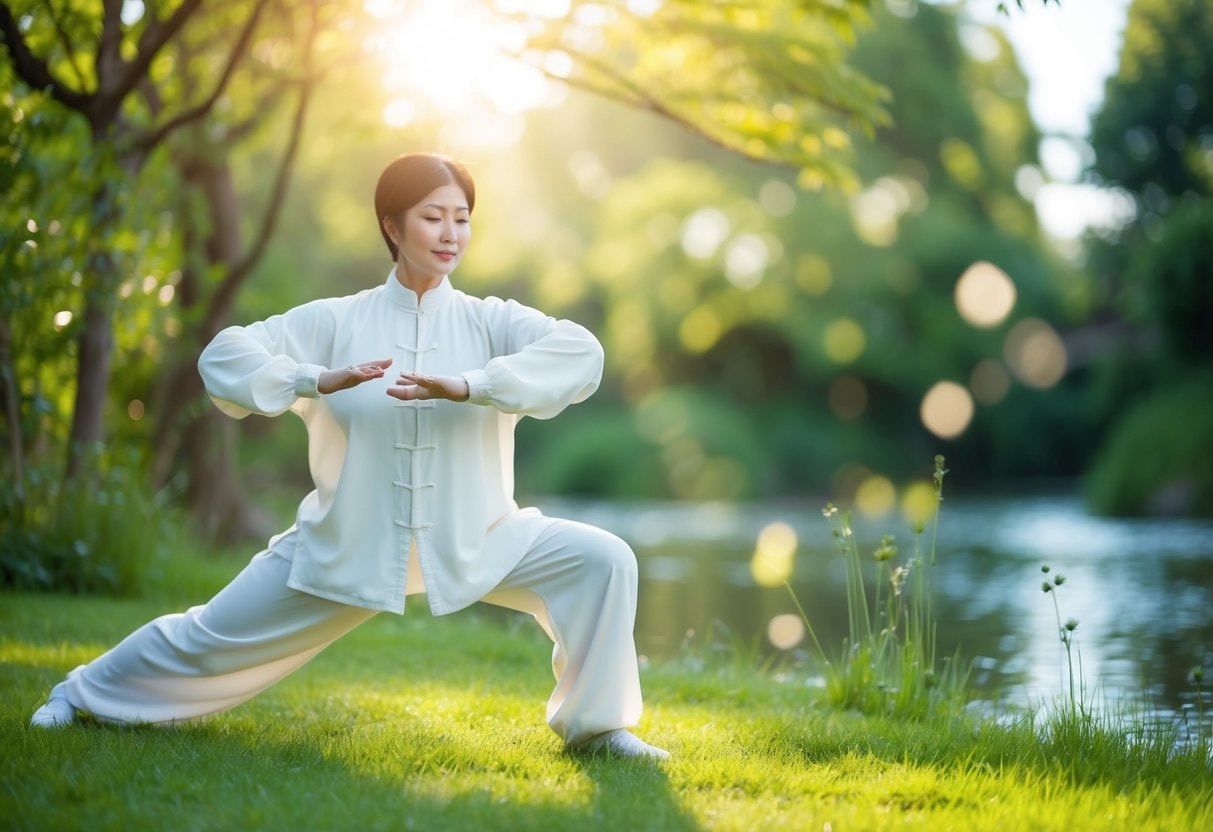
Managing anxiety and depression with Tai Chi can fit easily into your routine. It’s flexible and doesn’t need much space or equipment. You can practice at home, join classes, or mix it with other workouts.
Starting a Tai Chi Practice at Home
You can begin Tai Chi right in your living room. Pick a quiet spot with enough room to move your arms freely. Start with simple moves:
- Stand with feet shoulder-width apart
- Breathe deeply and relax your shoulders
- Slowly raise your arms to chest level, then lower them
- Repeat 10 times
Try this for 5-10 minutes daily. As you get comfy, add more moves to your routine. Watch online videos for guidance. Remember, Tai Chi is about slow, smooth movements. Don’t rush. Keep a regular schedule. Morning practice can set a calm tone for your day. Evening sessions may help you unwind. Listen to soft music if it helps you focus.
Finding and Choosing Tai Chi Classes
Group classes can boost your skills and motivation. Look for Tai Chi classes at:
- Local community centers
- Gyms or fitness clubs
- Senior centers
- Parks and recreation departments
When picking a class, consider:
- The instructor’s experience
- Class size (smaller groups mean more personal attention)
- Style of Tai Chi taught (Yang style is popular for beginners)
- Time and location that fits your schedule
Visit a class before signing up. Watch how the teacher interacts with students. Make sure you feel comfortable with the pace and style.
Incorporating Tai Chi into Existing Exercise Programs
Tai Chi blends well with other workouts. It’s great for warm-ups or cool-downs. Try these ideas:
- Start your gym session with 10 minutes of Tai Chi to center yourself
- Use Tai Chi moves between strength training sets for active rest.
- End your run with Tai Chi to stretch and relax.
Tai Chi can boost your overall fitness routine. It improves balance, flexibility, and mindfulness. These benefits carry over to other activities. On rest days from high-impact sports, do a full Tai Chi session. It’s gentle on your body but still keeps you moving. This helps with recovery and stress relief.
Personal Stories and Testimonies
People who practice Tai Chi often report improvements in their mental health and overall well-being. Their stories highlight how managing anxiety and depression with Tai Chi can lead to a more balanced, peaceful state of mind through its gentle, flowing movements.
Experiences of Individuals with Anxiety and Depression
You might find hope in the story of Sarah, who struggled with anxiety for years. After starting Tai Chi, she noticed a significant decrease in her symptoms. “The slow, focused movements helped me stay present,” Sarah shares.
John, who battled depression, found that Tai Chi’s mind-body connection improved his mood. He says, “It gave me a sense of accomplishment and peace I hadn’t felt before.”
Many practitioners report better sleep and increased energy levels. These benefits often lead to improved quality of life and a more positive outlook.
Tai Chi Practitioners with Chronic Health Issues
If you have a chronic health condition, you might relate to Mary’s experience. She manages arthritis pain through Tai Chi. “The gentle movements have increased my flexibility and reduced my discomfort,” Mary explains.
Tom, who has heart disease, found that Tai Chi helped lower his stress levels. He notes, “My blood pressure has improved, and I feel more relaxed overall.” Many people with chronic conditions report that Tai Chi helps them:
- Manage pain
- Improve balance
- Boost energy
- Enhance mood
These stories show how Tai Chi can be a valuable tool in managing both mental and physical health challenges.
Assessment and Measurement Tools
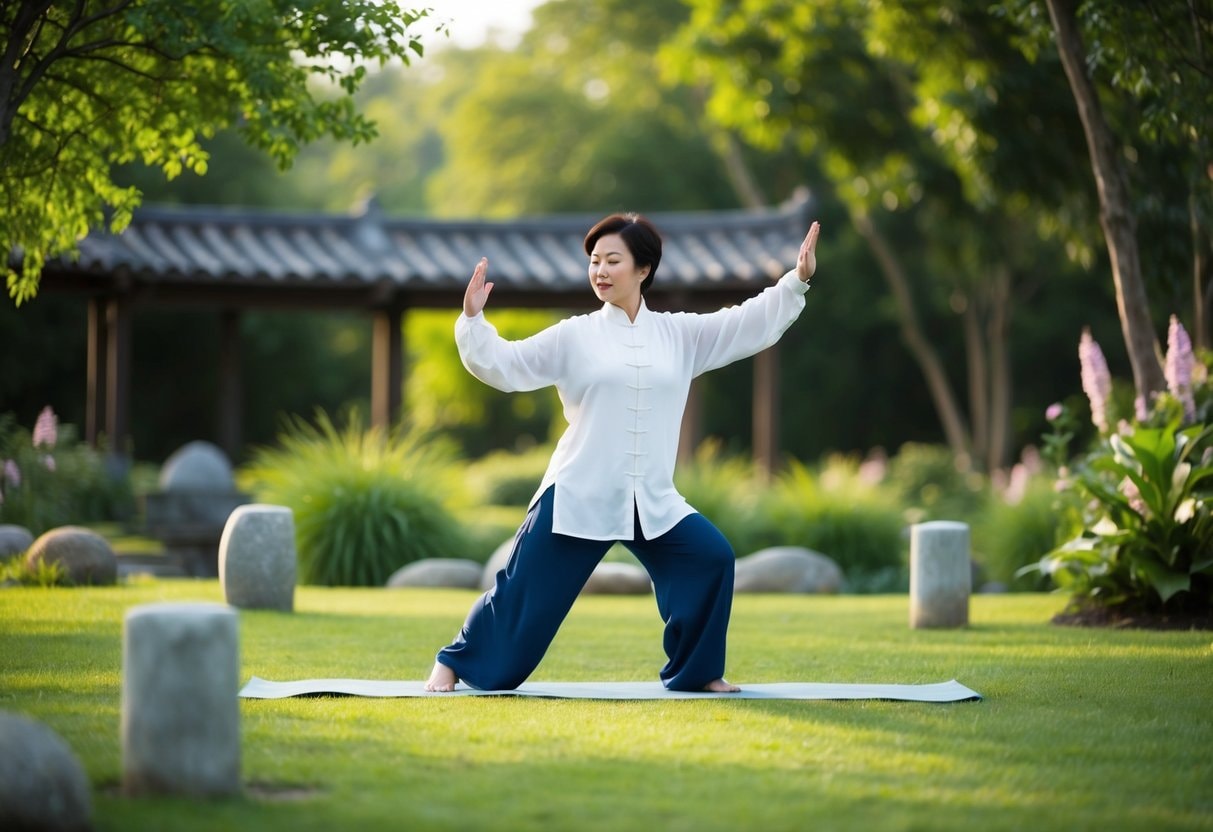
Tracking your progress in managing anxiety and depression with Tai Chi is key. Several tools can help you measure changes in your mental health as you practice.
Evaluating Psychological Improvements
Tai Chi’s effects on your mental health can be measured in various ways. You might notice changes in your mood, sleep quality, or stress levels. Keep a journal to record these changes. Some studies use brain scans to see how Tai Chi affects brain activity.
These scans can show changes in areas linked to mood and stress. You can also track physical changes. Tai Chi may improve your balance, flexibility, and strength. These physical gains often go hand-in-hand with mental health benefits.
Self-Rating and Clinical Scales
You can use self-rating scales to measure your progress. The Self-Rating Depression Scale is a common tool. It asks you to rate your symptoms over time. Clinical scales are used by healthcare pros. The Hamilton Rating Scale for Depression is one example.
It helps assess the severity of depression symptoms. The Beck Depression Inventory is another useful tool. It covers a wide range of depression symptoms. For anxiety, you might use the Beck Anxiety Inventory. It measures common anxiety symptoms.
Remember, these tools work best when used regularly. They can help you and your doctor see how Tai Chi is affecting your mental health over time.
Challenges and Considerations
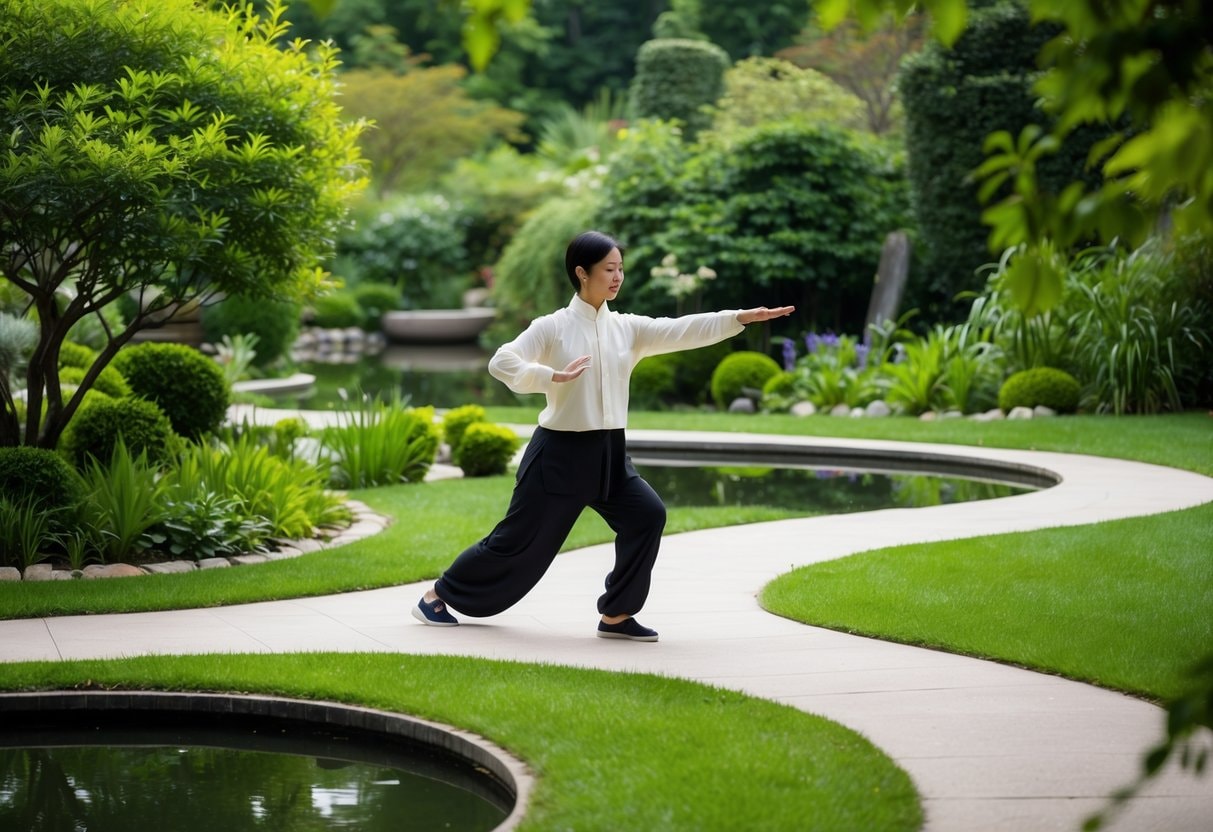
Managing anxiety and depression with Tai Chi can be highly effective, but it’s not always easy. You might face some hurdles as you start. Let’s look at how to deal with common issues.
Personal Limitations and Adaptations
You might worry that you’re not fit enough for Tai Chi. Don’t stress! Tai Chi is for everyone. If you have trouble standing for long, try seated Tai Chi. It works great for older adults or those with limited mobility.
Are you super busy? No problem. Even 10 minutes a day can help. You can break it up into short sessions. If you have insomnia or fatigue, go slow. Start with gentle moves. As you get stronger, you’ll sleep better and have more energy.
Overcoming Obstacles in Practice
Finding time can be tough. Try waking up 15 minutes earlier. Or do Tai Chi on your lunch break. Feeling shy about joining a class? Start with online videos. You can learn the basics at home. Confused by the moves? Don’t give up! It takes time to learn.
Break each move into small steps. Practice one part at a time. Remember, progress is progress. Even if you can’t do every move perfectly, you’re still getting benefits. Keep at it!
Check out this video on Tai Chi for managing depression, anxiety, unhappiness, low mood, and low energy.
By: Taichi Zidong
Embracing Inner Calm: The Transformative Power of Tai Chi for Mental Well-Being
Managing anxiety and depression with Tai Chi offers a holistic approach to mental wellness that can significantly enhance emotional well-being. By incorporating the ancient practice of Tai Chi into daily life, individuals can experience a range of benefits, including reduced anxiety and improved mood. The gentle movements combined with mindful breathing not only calm the mind but also promote relaxation throughout the body. As practitioners engage in this meditative exercise, they learn to embrace the present moment, fostering a sense of peace that helps to combat the overwhelming feelings often associated with anxiety and depression.
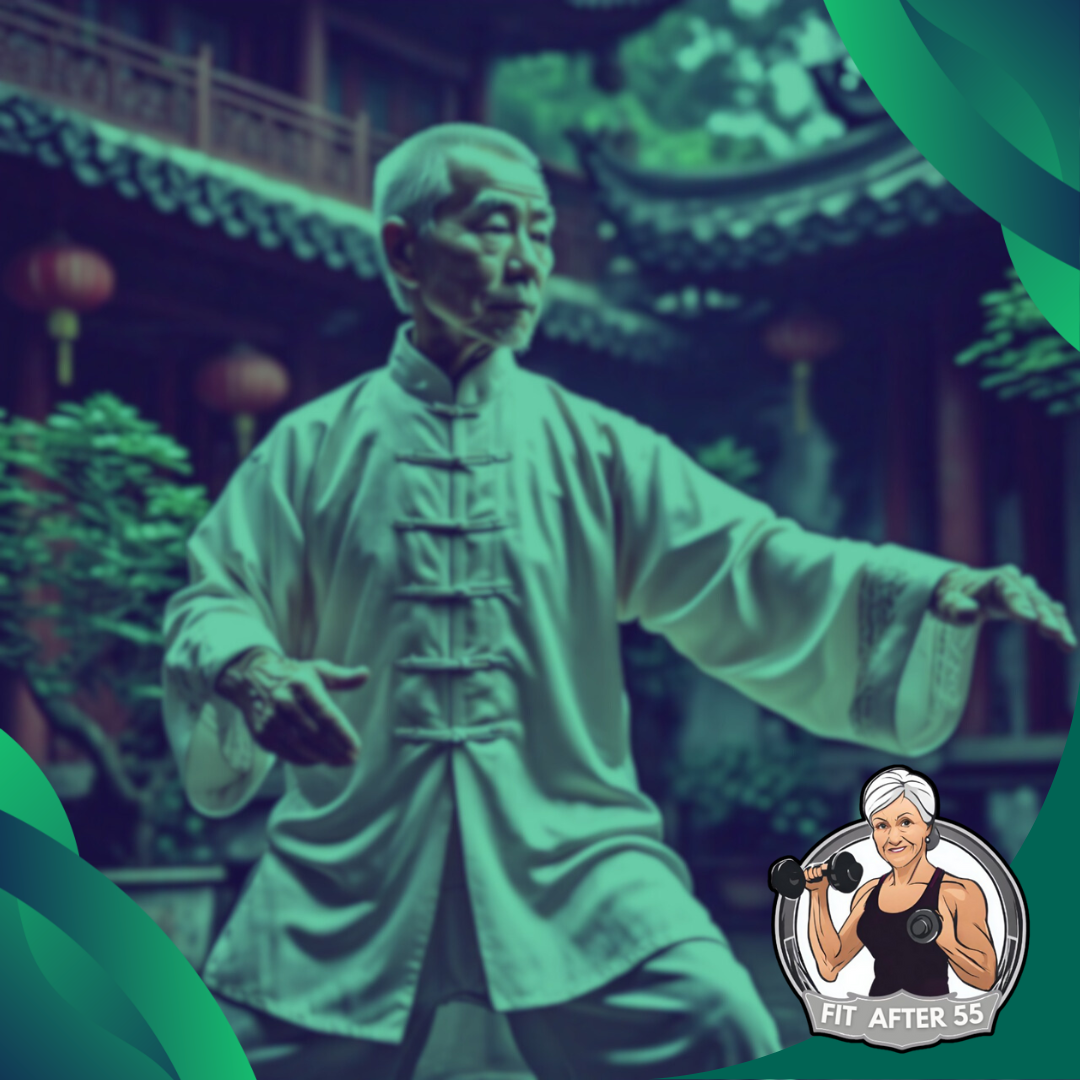
As more individuals explore the benefits of Tai Chi, it becomes evident that this practice is not just a form of exercise but a pathway to a healthier, more balanced life. Whether practiced alone or in a group setting, Tai Chi encourages connection—to oneself, to others, and to the environment. As such, it stands out as a valuable tool for those seeking to manage their mental health naturally. By making Tai Chi a regular part of their routine, individuals can empower themselves to take control of their emotional landscape, fostering resilience and a deeper sense of tranquility amidst life’s challenges.
Frequently Asked Questions
How Often Should I Practice Tai Chi to See Improvements in Anxiety and Depression?
Practicing Tai Chi regularly, ideally several times a week, can lead to noticeable improvements in anxiety and depression. Even short sessions of 10-20 minutes a day can be beneficial, helping to build a routine that enhances your mental well-being.
Can Beginners Easily Learn Tai Chi for Managing Anxiety and Depression?
Yes! Tai Chi is accessible for beginners and can be adapted to various fitness levels. Many classes start with the basics, making it easy for newcomers to learn the slow, flowing movements that promote relaxation and mindfulness.
Are There Specific Tai Chi Styles Recommended for Individuals With Anxiety and Depression?
Yang style Tai Chi is often recommended for beginners. It has slow, gentle movements that are easy to learn. Sun style is another good option. It’s known for its smooth, flowing motions that can be calming for those with anxiety.
Transform Your Fitness Journey Beyond 55!
Hello, fitness enthusiasts! Discover the key elements for maintaining an active and healthy lifestyle with Fit After 55! Whether you’re an experienced athlete or just starting out, our platform is your ultimate resource for comprehensive well-being. From setting achievable goals to tracking your progress, we’re committed to assisting you in redefining success after 55. Visit our website and join us on Facebook to unleash your full potential with Fit After 55!

